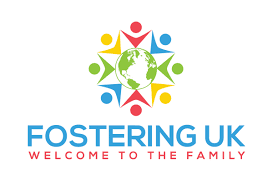What is Parent & Child Fostering?
UK Fostering works with local governments and other organisations to provide foster care services such as short-term, long-term, and emergency foster care. They are committed to providing foster carers with the training, support, and resources they need to provide the best care possible for the children and young people in their care.Foster care encompasses a wide range of situations in which a child or young person is cared for by someone other than their birth parents or family. This could be due to the child's biological parents' inability to care for them, or it could be due to the child's development and well-being benefiting from being in a different type of family setting.
When we talk to people about becoming foster carers, we find that many have never heard of parent and child fostering, also known as mother and baby placement (although can be father and baby). Some believe it is simply about providing housing and assistance to a struggling parent, but it is much more. Parent & Child (P&C) fostering is a type of fostering in which vulnerable parents are supported alongside their children in a foster family. This typically involves placing a baby or child, along with one or both parents, in a foster home to learn how to cope with parenthood in a safe and secure environment. Many are young, first-time parents, while others are older parents who have previously had a child.
Parent-child fostering refers to a type of foster care placement in which a child is placed with foster families or a caregiver who is not their biological parent but is still considered to be a member of their family network. This type of arrangement is intended to maintain a child's connection to their biological family and community while ensuring that they receive the care and support they need. The goal of parent-child fostering is to provide a safe, stable, and nurturing environment for the child while working toward reunifying them with their biological parents or finding permanent adoptive placement.
What are the advantages of parent-child fostering?
Fostering between parents and children benefits both the child and the parents involved. For starters, the child or infant benefits from being in a stable family environment, and the parent (usually the mother) gains invaluable emotional support while learning the skills necessary for parenthood like Parenting skills, such as how to hold or feed a baby, With the additional assistance provided, parents may be able to continue their studies and complete their schooling.
What is expected of a parent and child foster carer?
On a practical level, you will need a bedroom large enough to accommodate a bed for the parent, a cot for the baby, a wardrobe, a chest of drawers, and other baby equipment, as well as appropriate toys and other baby equipment. The parent will require access to a bathroom, laundry, and cooking facilities.
Foster carers, on the other hand, must possess a wide range of skills and qualities, such as being a good listener, having a good sense of humour, being optimistic, keeping their feet firmly on the ground, and demonstrating resilience. They must also be able to provide the time, commitment, space, and skills to parents who are struggling to care for their young children. These are a few examples: These include
- The ability to be sensitive to new parents.
- Self-assurance and the ability to lead by example
- Observational skills and the willingness to observe and record how the parent cares for the child while remaining unobtrusive are required.
- Patience and encouragement when imparting parenting advice and skills
Foster carers maintain close contact with the supporting social worker and are expected to participate in reviews and meetings to report on the placement's progress.




Comments
Post a Comment